In recent weeks a quiet scandal has erupted in the Iranian martial arts world. A female five-time world champion in wushu, a type of Chinese kung fu, has been banned along with two male colleagues for doping. To make matters worse, two other female athletes who tried to blow the whistle on nepotism in Iran’s Wushu Federation have been punished with temporary disqualification.
News broke in early August that Maryam Hashemi, an IRGC-backed wushu star who just last year presented her latest gold medal in the 2019 World Wushu Championships to Ayatollah Khamenei, had tested positive for the anabolic steroid nandrolone. She and two lesser-known male athletes have been barred from international competitions for the next four years.
After reports of the disqualification surfaced, two equally famous wushu fighters, Shahrbanou and Soheila Mansourian, were punished for publicly complaining about abuse of process and corruption in the Federation via a misogynistic media campaign and being barred from the sport in Iran.
Iran’s national wushu team scored the best results in its history at last year’s China world championships, coming home with a clutch of gold medals for the Supreme Leader, Ayatollah Khamenei. The tussle, largely hidden behind a media blackout in Iran, has shed light not only on how many of these accolades might be dirtied by performance-enhancing drug use, but on the unchecked power and media might of Iran’s deputy sports minister, Mehdi Alinejad.
Iranian Athlete’s Hushed-up Fall From Grace
In the first week of August 2020, the World Anti-Doping Agency (WADA) published the names of three Iranian wushu champions in connection with doping: Moin Taghavi, Hamidreza Gholipour, and Maryam Hashemi, all three of whom had been hit with four-year bans from international contests back-dated to last October. The case of Hashemi, who is said to be a member of the IRGC’s Nabi Akram brigade in Kermanshah, attracted particular attention.
Hashemi is 29 years old and a five-time women’s world champion. In 2013, shortly after snatching the title for the second time following her first victory in 2011, she made headlines in Iran for her unconventional behavior during a meeting of athletes and medalists with the Supreme Leader of the Islamic Republic. During the event, Hashemi wordlessly got up and walked over to Ayatollah Khamenei, handing him her medal.
Since then Hashemi has presented gold medals to the Supreme Leader on many occasions. These accolades are all now tainted by doping, alongside those of her two male fellow athletes who also tested positive.
The World Anti-Doping Agency has told the three to hand back the medals they won at the 2019 World Championships in China. Iran’s national wushu team finished second in the global contest last year, scooping nine gold, two silver and one bronze medals. It isn’t clear quite how Hashemi’s medal is to be returned, given that it is now in the hands of the Supreme Leader of the Islamic Republic.
An informed source told IranWire that these cases are the tip of the iceberg. "The number of athletes who knowingly or unknowingly doped in the 2017 World Championships in Russia and the 2019 World Championships in China is much higher than these three," they said, adding that more names are likely to be announced soon.
Famous Kung Fu Sisters Punished for Speaking Out
The Mansourian sisters, Shahrbanoo, Soheilah and Elaheh, are also wushu world champions whose stratospheric rise has been well-documented in Iran and overseas. The sisters had a difficult childhood, with Shahrbanou forced to work in people’s houses and gardens to keep herself and her siblings fed after their father passed away. But they overcame the odds and became master practitioners, shining at wushu competitions at home and abroad and with no fewer than 30 international medals to their family name. The Mansourians are also regular guests at talkshows on Iranian TV and their inspiring story was even made into for a film, Zero to Podium, in 2017.
Now, though, the sisters appear to have fallen victim to a misogynistic campaign and to the power of men and women backed by the Islamic Revolutionary Guard Corps, who over the years have contaminated Iranian sport with doping.
In the face of widespread silence in the Iranian media about the banning of Hashemi and her colleagues, Shahrbanou and Soheila Mansourian took to Instagram to criticize both Iran’s Wushu Federation and its current and former management, saying they considered Hashemi’s medals to be a symbol of international fraud.
Shahrbanou Mansourian also claimed it was not the first time Hashemi had tested positive for performance-enhancing drugs. She added that she believed Hashemi had been fast-tracked through the qualifiers, stating: “Hashemi was defeated in three qualifying contests in front of an audience of 2,000. However, they still chose her for the world competitions.”
Instead of their comments being taken seriously, the sisters faced a torrent of sexist abuse from Iran’s state-controlled media. The IRGC-affiliated Tasnim news agency decried the Federation’s overseas critics as the “enemy” and defended Hashemi, saying of the sisters: “Shahrbanou and Soheila Mansourian, who in the past months, forgetting their duties as athletes, were mostly working in the modeling industry, have used their status to harm another woman in sports and provided material for the use of the enemies of the people, the system and the Leader. These women, who should have been role models themselves, are now anti-role models for the immorality they have committed."
The report exposed the Mansourian sisters to the worst of the Iranian Wushu Federation’s moral and managerial corruption. They have now been hit with a 28-month ban from participating in any domestic and international competitions, for the offence of having blown the whistle on a cheating competitor.
The sisters were also thrown under the bus by Zahra Nateghi, who sits on the women’s committee of the International Wushu Federation and also previously served in the IRGC’s ground forces and intelligence division. She told Tasnim: "Shahrbanou Mansourian's statements are a lie. Everything she has, she has because of us!"
Unaccountable Federation Boss More Powerful than Ever
The anonymous source who contacted IranWire on July 15 correctly predicted the announcement about Hashemi and her colleagues, several days before the fact. They also had a second prediction: "A number of Iranian athletes have been informed of the results of their doping test and intend to reveal information about the former president of the Wushu Federation."
The source went on to claim that Mehdi Alinejad, the then-president of the Iranian Wushu Federation and the regime’s most senior Deputy Minister of Sport and Youth, had personally been aware of the doping of these athletes.
Mehdi Alinejad is a powerful man with access to innumerate media attack-dogs in Iran. In 2011 it was reported that he had spent 115 million tomans on media activities alone. Throughout his tenure at the Federation and in government he has never been criticized or held to account; on the contrary, the achievements of Iranian male and female wushu players are written in his name. On taking up the post at the Ministry of Sports, he was hailed in domestic media as being “the best manager in the history of sports in Iran”.
His father, Mohammad Alinejad, was an amateur wrestler in the 1960s who later turned to martial arts. But the 1979 Islamic Revolution changed the course of his life and, after a spell running physical education organizations, he launched a career in Iran’s oil and petrochemical industry and made a fortune as a senior manager.
Mehdi Alinejad began his career in the media as the owner and editor of Razmavar martial arts magazine. He then followed in his father’s footsteps, working as the head of the Ministry of Oil’s sports division from 2005 to 2010 and earning praise from then-president Mahmoud Ahmadinejad for his services to the ministry. Just seven months after leaving the role he was re-appointed by the same government body, this time as head of the ministry office.
Alinejad has headed up Iran’s Wushu Federation for 13 years. He is also a vice-president of the Asian Wushu Federation and a member of the administrative board of the International Wushu Federation.
In sum, Mehdi Alinejad is the embodiment of an “Aghazadeh”: a colloquial Iranian term that emerged in the 1990s for the children of the elite, who rise to power and influence not on their own merit but because of family connections. Not only does he have the state- and military-run media at his beck and call, but he is able to punish and disqualify Iranian athletes who speak out against him without repercussions.
In recent months he was also the recipient of one last, special appointment – one that is now raising eyebrows. On New Year’s Eve last year, Iran’s domestic media reported the following: “Alinejad Becomes Chairman of the Central Anti-Doping Council.”
“Alinejad led the Federation for 13 years,” the source said, “and during this time he was involved in several incidents of corruption, each of which could make a book. When he became the director of the Anti-Doping Council, it was because he and the Iranian Sports Authority knew what was going to happen."
Smokescreen Over the News in Iran
For some years now Iran’s Wushu Federation, along with the umbrella organizations for volleyball and weightlifting, has been one of Ayatollah Ali Khamenei’s favourite sports entities. It is by now standard practice for wushu fighters, from world champions to teenage first-time competitors, to present him with the medals they win overseas.
But in the collection of accolades for Chinese kung-fu that have been handed to the Supreme Leader down the years, there is no shortage of medals tainted by doping. For this reason it comes as little surprise that Alinejad has been positioned both as a senior decision-maker in the Ministry of Sports and chairman of Iran’s anti-doping council.
In its statement on the disclosure of doping athletes’ names by the World Anti-Doping Agency, Iran’s Wushu Federation not only failed to apologize but attempted to cover itself off, claiming that it was “not the responsibility” of the Federation to publicize drug test results and advising the media to “evaluate the accuracy of the allegations” before publishing them further, so as to avoid “misinformation”. The Federation was also at pains to emphasize that handing back the athletes’ medals would not affect Iran’s final position in the 2019 ranking.
No mention of Hashemi’s four-year ban from wushu has been made by Iranian domestic media. The Wushu Federation has also not named Hashemi and has simply said that it will be complaining to WADA.
IranWire’s informed source also reported that some Iranian wushu players have been threatened by Alinejad – and reporters at state-controlled media outlets have been warned not to cover the case of Taghavi, Gholipour and Hashemi. Further, they said, other athletes whose names are likely to appear on the banned list in the near future have also been warned by the Federation and Ministry of Sports to keep quiet. Whether they acquiesce, or choose instead to come out in defiance like the embattled Mansourian sisters, remains to be seen.
visit the accountability section
In this section of Iran Wire, you can contact the officials and launch your campaign for various problems




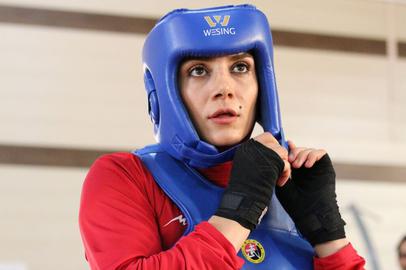
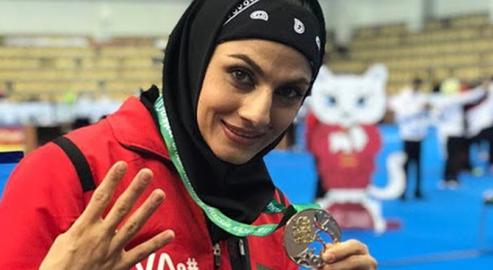
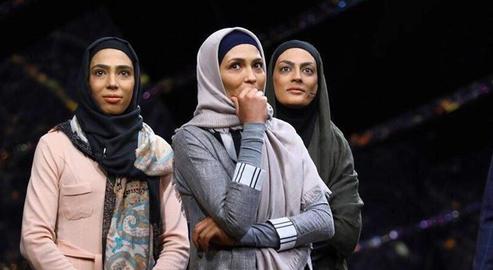
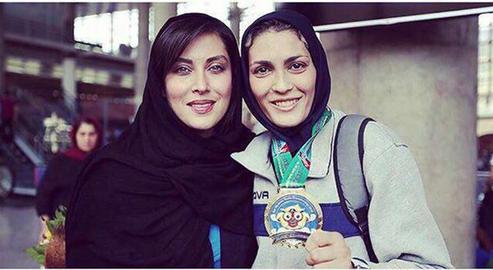
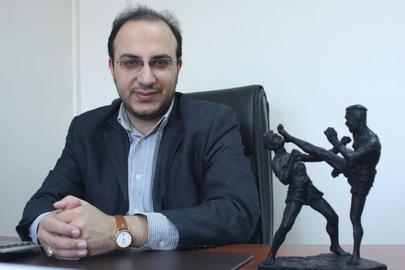
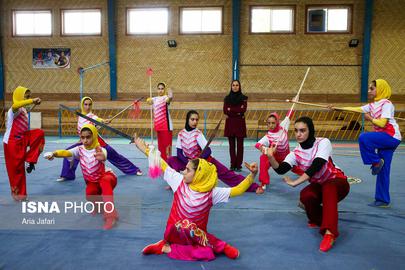
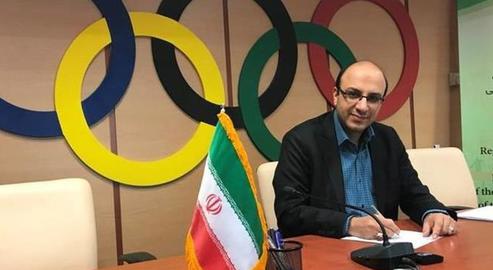




















comments